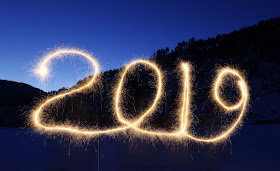Our memory for the details of real-life events is poor, according to a recent study.
Seven MIT students took a one hour walk through Cambridge, MA. A day later, they were presented with one second video clips they may or may not have seen during their walk (the “foils” were taken from another person's recording). Mean recognition accuracy was 55.7%, barely better than guessing.1Minimal recognition memory for detailed events. Dashed line is chance performance. Adapted from Fig. 2 of Misra et al. (2018).
How did the researchers capture the details of what was seen during each person's stroll about town (2.1 miles / 3.5 km)? They were fitted with eye tracking glasses to follow their eye movements (because you can't remember what you don't see), and a GoPro camera was mounted on a helmet.
from Fig. 1 (Misra et al., 2018).
One problem with this setup, however, was that the eye tracking data had to be excluded. The overwhelmingly bright summer sun prevented the eye tracker from obtaining accurate images of the pupil. Thus, Experiment 2 was performed inside the Boston Museum of Fine Arts with a separate group of 10 students.
from Fig. 1 (Misra et al., 2018).
Recognition performance was better in Experiment 2. Mean accuracy was 63.2% — well above chance (p=.0005) — but still not great. Participants correctly identified clips they had seen 59% of the time, and correctly rejected clips they hadn't seen 67% of the time. One participant (#4) was really good, and you'll notice the individual differences below.
Dashed line is chance performance. Adapted from Fig. 2 of Misra et al. (2018).
In Exp. 2, the investigators were able to look at the influence of eye fixations on memory performance. Not surprisingly, people were better at remembering what they looked at (fixated on), but this only held for certain categories of items: talking people, objects rated as “distinctive” (but not distinctive faces), and paintings (but not sculptures).
Fig. 4 (Misra et al., 2018).
How do the authors interpret this finding? We don't necessarily pay attention to everything we look at.
“What subjects fixated on also correlated with performance (Fig. 4), but it is clear that subjects did not remember everything that they laid eyes on. There is extensive literature showing that subjects may not pay attention or be conscious of what they are fixating on. Therefore, it is quite likely that, in several instances, subjects may have fixated on an object without necessarily paying attention to that object. Additionally, attention is correlated with the encoding of events into memory. Thus, the current results are consistent with the notion that eye fixations correlate with episodic memory but they are neither necessary nor sufficient for successful episodic memory formation.”
For me personally, 2018 was a year to forget.2 Yet, certain tragic images are etched into my mind, cropping up at inopportune times to traumatize me all over again. That's a very different topic for another time and place.
May your 2019 brighten the sky.
The number 2019 is written in the air with a sparkler near a tourist camp outside Krasnoyarsk, Russia, on January 1, 2019. (The Atlantic)
Footnotes
1 However:
“Two subjects from Experiment I were excluded from the analyses. One of these subjects had a score of 96%, which was well above the performance of any of the other subjects (Figure 2). The weather conditions on the day of the walk for this subject were substantially different, and this subject could thus easily recognize his own video clips purely from assessing the weather conditions. Another subject was excluded 260 because he responded 'yes' >90% of the trials.”
2 See:
I should have done this by now...
The Lie of Precision Medicine
Derealization / Dying
There Is a Giant Hole Where My Heart Used To Be
How to Reconstruct Your Life After a Major Loss
Reference
Misra P, Marconi A, Peterson M, Kreiman G. (2018). Minimal memory for details in real life events. Sci Rep. 8(1):16701.
We forget most of our lives... Misra et al, Scientific Reports 2018. https://t.co/iK3E6c8mvB pic.twitter.com/ern3QQVWJm— Gabriel Kreiman (@gkreiman) November 16, 2018






Great info. It puts me at ease. I'm not so worried about my aging memory anymore. Maybe it's not so much my memory but that I'm so distracted by the many things going on in my mind.
ReplyDelete